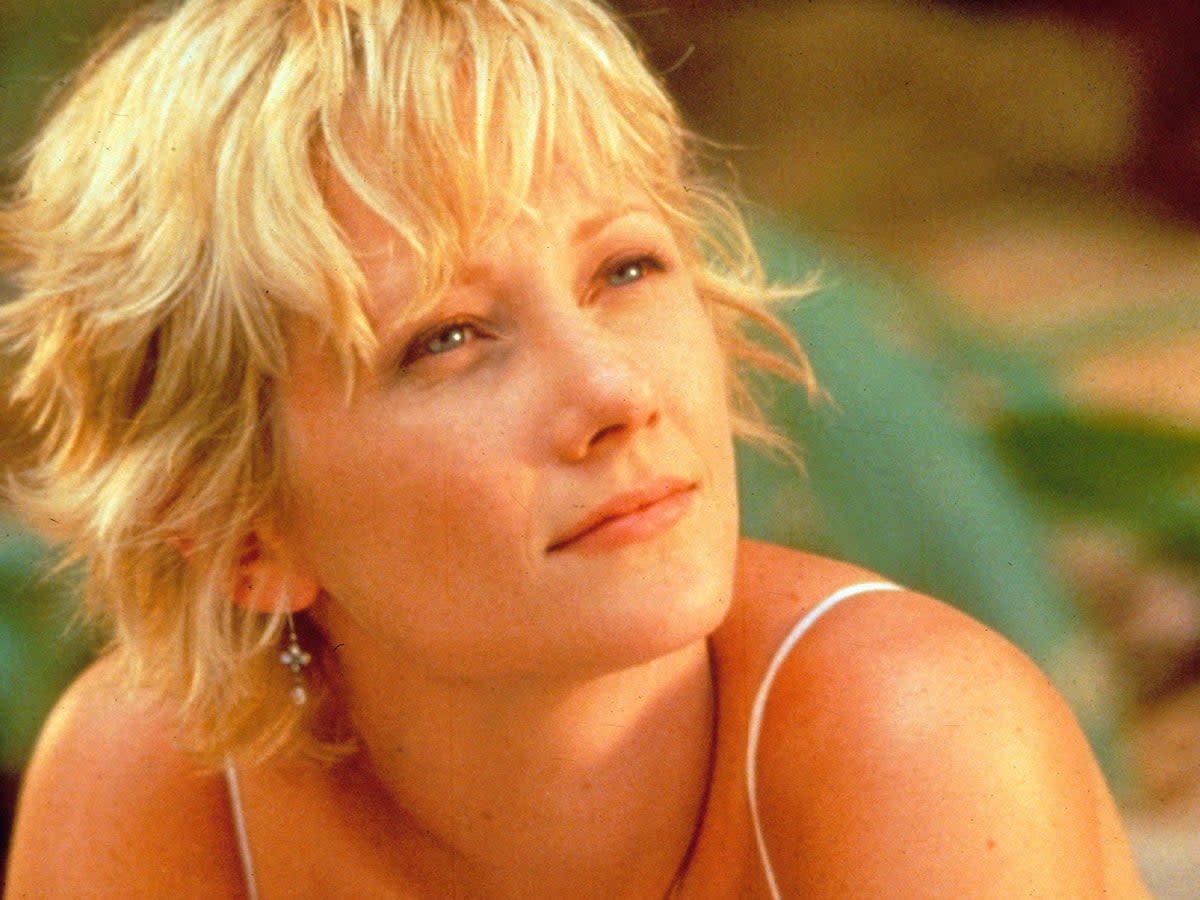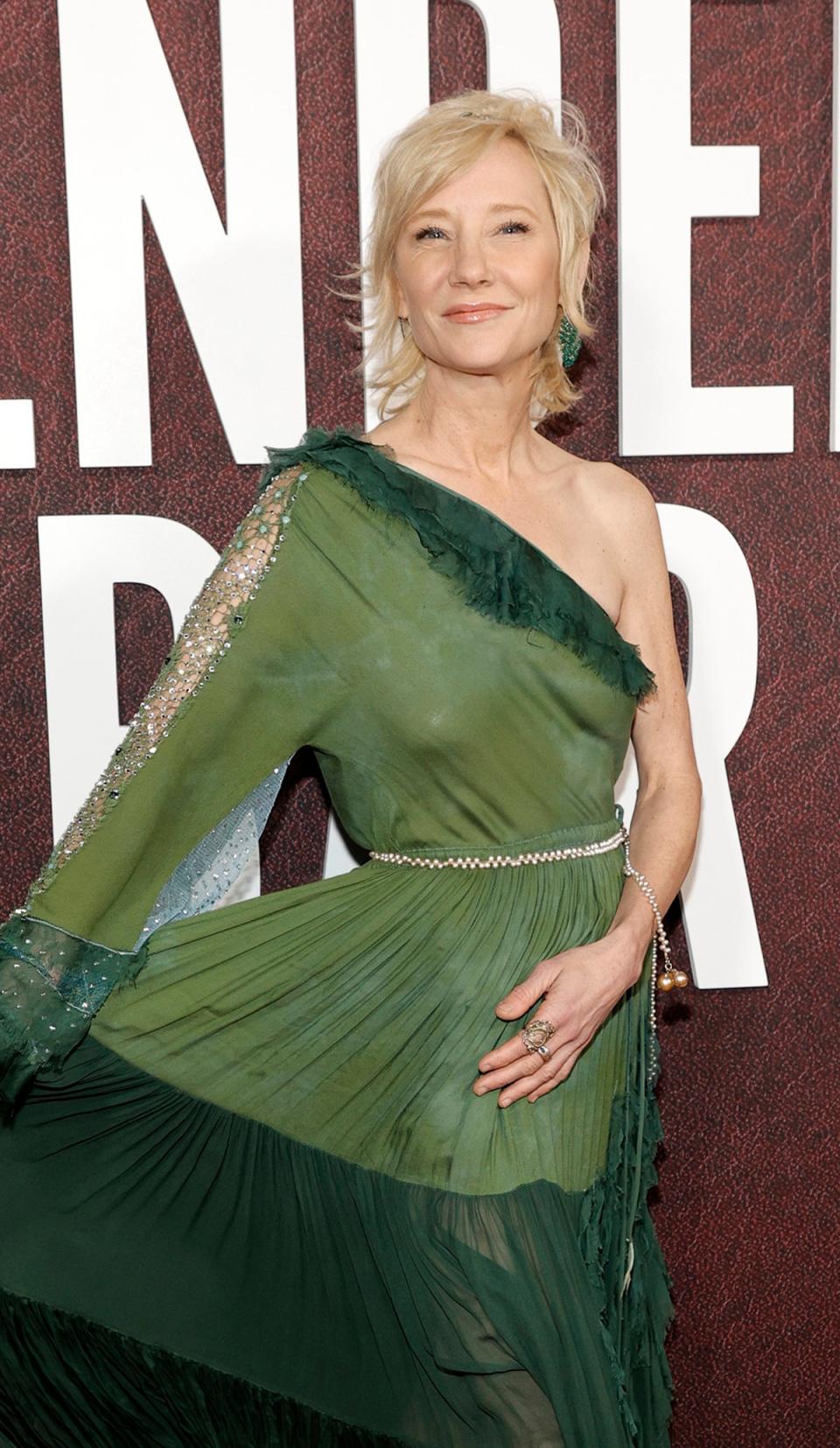Anne Heche was my favourite actor – she should have been yours, too

I’ve always got puzzled looks when I tell people my favourite actor is Anne Heche. As if it couldn’t be true, because no one’s favourite actor could possibly be Anne Heche. A few (more discerning) people got it, recognising the prickly, haunting elegance she brought to her work in Donnie Brasco, Wag the Dog or the Psycho remake. Her sheer watchability. Others drew a blank. “Didn’t she date Ellen DeGeneres?” Yeah. And, honestly, that was an important part of her story. But that her name inspires such a variety of responses only speaks to Heche’s place in the cultural consciousness. In her work and in her personal life, she seemed to go to places that few others understood in the moment itself. Instead, we all had to catch up with her.
Heche’s death was confirmed today in a family statement, coming a week after the 53-year-old was taken to hospital following a catastrophic car accident in Los Angeles. She never regained consciousness. It is an unspeakably cruel ending to a life already marked by tragedy and difficulty. And yet, she always faced her hardships with grace, strength and total candour. There were no secrets with Heche, no denial of her demons. She knew that mental illness could be unpretty and nonsensical, and that speaking so openly about her experiences of it when it was still taboo would leave her open to mockery. She did it anyway.
Heche was only a big, name-above-the-title movie star for two years, leading the 1997 blockbuster Volcano, and the romantic comedy Six Days Seven Nights with Harrison Ford in 1998. In both, she had the rat-a-tat delivery of an earlier Hollywood, a smirking, wide-eyed glamour that brought to mind a young Myrna Loy. That only skimmed a tiny bit of her range, though.
There’s her shifting micro-expressions of guilt and panic after she drives off with $400,000 from her employer in Psycho. Her gentle neuroses in Nicole Holofcener’s sterling debut Walking and Talking. Her appalled wail of “get your f***ing hands off me” when her client – Vince Vaughn’s accused drug trafficker – is sentenced to death in the underrated thriller Return to Paradise. She was as believable as an unnerving sophisticate in Jonathan Glazer’s operatic masterpiece Birth – starring Nicole Kidman – as she was as a psychopath in a TV movie called Fatal Desire. Heche made stalking a puffy Eric Roberts not just believable, but almost understandable. “Get your man,” you found yourself shouting at the TV.
Unexpectedly, her definitive performance may be in the 1997 slasher movie I Know What You Did Last Summer. Not because she’s in it a lot, or necessarily does anything in it that feels bigger or more rewarding than in her other work, but because it best captures the “essence” of her. She plays Missy Egan, the sister of a man that Jennifer Love Hewitt’s Julie and Sarah Michelle Gellar’s Helen believe they’ve killed in a car accident. Missy lives in a gothic backwoods abode that’s seemingly allergic to lightbulbs, and Julie and Helen plot to snoop around her house by pretending to have broken down in their car outside. Missy is, essentially, a plot device and red herring – but Heche injects the character with such rich pathos and sadness that she quietly steals the whole movie.
Missy’s entire life seems to flash before her eyes in just a few sentences. She is skittish with grief, still unsure if she wants to talk about her dead brother or get off the subject. She talks of her brother’s friend – a mysterious stranger named Billy Blue – and how they were “sweet on each other for about two minutes”, reminiscing as if he were an old lover and not the briefest of encounters. When Julie and Helen move to leave, Missy erupts in quiet desperation, insisting they stay for tea. You can imagine it was written to be creepy – maybe the tea was poisoned – but in Heche’s hands, Missy reads as profoundly lonely. Not a monster. Just one more person crying out for connection in a world so cruel.

In 2020, Heche said in an interview that she once overheard her agents in the Nineties refer to her as “the white trash Gwyneth Paltrow” – a nod to the rarefied air that floated around Paltrow, but presumably didn’t with Heche. It’s an unkind descriptor, but does at least gesture to Heche’s approachability, or general lack of artifice as an actor. Even before the publication of Heche’s memoir Call Me Crazy in 2001, which detailed her experiences of familial tragedy, sexual abuse, religious oppression and mental illness, there was a great, human weight to her performances. As if she was skirting the edges of her soul with every fictional trauma she dramatised on camera, or every cry of pain. You just knew Heche had seen things, and understood all of the beauty and horror of being alive.
That’s also why she was so open about everything. Growing up, Heche had been engulfed in other people’s untruths and suffered enormously. Her father was a God-fearing Baptist choir minister and closeted gay man who died of Aids. He molested Heche from her early childhood. Later, she would maintain that her older brother’s fatal car accident at 18 was a suicide, despite what her family claimed. As an adult, she made total honesty her goal. “Nothing else is worth anything,” she said in 1998.
When Heche struck up a relationship with a newly out Ellen DeGeneres in 1997, she ignored Hollywood power players who threatened her career if she went public with it. The relationship soured by 2000, but celebrating her sexual fluidity so openly remains one of Heche’s greatest victories as a pop culture figure – even if it took time for everyone to realise. Both women faced the onslaught of attention and criticism in different ways. DeGeneres, then a popular sitcom star playing an unlucky-in-love straight woman on weekly TV, appeared with Heche on a notorious 1997 episode of Oprah Winfrey’s talk show to discuss her coming out. Understandably terrified of losing her career and valiantly fielding questions about her sex life from audience members, DeGeneres was living in the volatile present. Heche, sitting at her side, was living in the future. She wasn’t a lesbian, she said. Or straight, either. She just loved. It was a bit of a doomed endeavour, Heche attempting to convey the rich complexities of gender and sexuality to an audience that, barely five minutes ago, had asked DeGeneres to explain what a lesbian is. Today, though, Heche’s understanding of the sexual spectrum – that love and attraction can arrive in many different forms – has been revealed as incredibly prescient.
“I was a part of a revolution that helped move equality forward,” she said in 2020. “I would not have been able to do that if I had not fallen in love with Ellen. There is nothing more that I wear with a privilege in my life than being a person who has told the truth, and stands up for it. There is no timeline for truth. I live in love and that’s it.”
It’s a wonderful legacy to have; thank god Heche lived long enough to recognise for herself what good she did for queer visibility in the mainstream. But I’m also hoping that her death will inspire people to look back on her work with fresh eyes, too. To finally see her singular genius as an actor, the honesty with which she brought her characters to life, her exhaustive range. And maybe one day I’ll be at a party and tell someone that my favourite actor is Anne Heche, and I won’t be met with slight bafflement.
“Oh yeah!” they’d say. “I loved her, too.”

 Yahoo News
Yahoo News 
